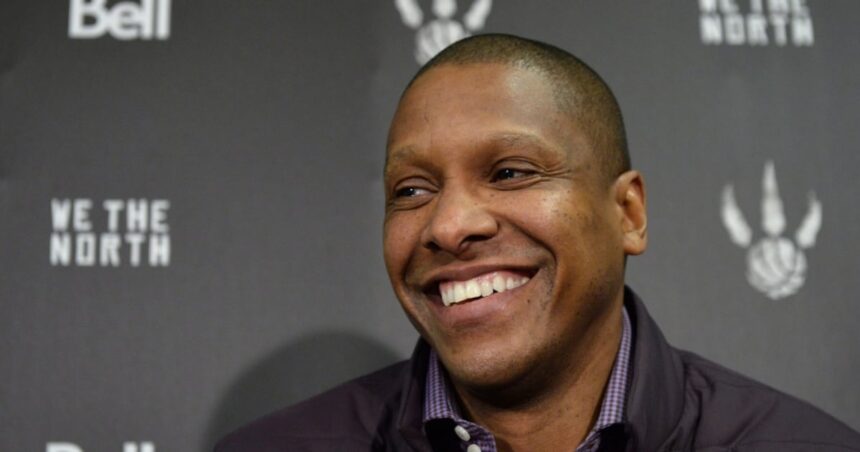The relationship between a sports executive and a franchise rarely captures the public imagination. Masai Ujiri broke that mold. When he arrived in Toronto in 2013, few could have predicted how fundamentally he would transform not just the Raptors, but the basketball culture of an entire country. His journey with the team represents one of the most consequential executive tenures in modern North American sports.
As I reflect on Ujiri’s remarkable odyssey with the Raptors, what stands out isn’t just the championship hardware, but the philosophical revolution he engineered. From the moment he stepped into his role, Ujiri approached team-building with a global perspective that was ahead of its time in the NBA ecosystem.
The story begins in May 2013, when the Raptors lured Ujiri away from the Denver Nuggets with a five-year contract worth $15 million to become their general manager. This homecoming (Ujiri had previously served as Toronto’s assistant GM) set in motion a decade of bold decision-making that would ultimately elevate the franchise to unprecedented heights.
His first major move sent shockwaves through the fanbase: trading fan-favorite Andrea Bargnani to the New York Knicks. But it was the December 2013 Rudy Gay trade that truly signaled Ujiri’s vision—a deal that unexpectedly transformed the team’s trajectory and ignited a playoff push. Within months, the “We The North” campaign launched, forever changing how Canadians connected with basketball.
The DeMar DeRozan era represented both emotional investment and competitive ceiling for the franchise. Under Ujiri’s watch, the team enjoyed regular-season success but faced painful playoff exits, particularly against LeBron James and the Cleveland Cavaliers. These disappointments demanded introspection and ultimately led to Ujiri’s most controversial and successful gamble.
In July 2018, Ujiri made the decision that defined his tenure—trading beloved star DeMar DeRozan to San Antonio for Kawhi Leonard. The move was widely criticized for its apparent coldness, trading away the most loyal Raptor for a potentially one-year rental. Looking back, this represented the perfect distillation of Ujiri’s leadership philosophy: emotional intelligence balanced with clinical decision-making and calculated risk.
We all know what happened next. Leonard led Toronto to its first NBA championship in June 2019, defeating the Golden State Warriors dynasty and creating moments of national celebration across Canada. The championship parade drew an estimated two million people to downtown Toronto—a testament to how successfully Ujiri had transformed basketball into a unifying cultural force.
What makes Ujiri’s story particularly fascinating is how it extends beyond basketball. His philanthropy through Giants of Africa has created opportunities for young people across the continent. His advocacy following the racial justice protests of 2020 demonstrated his willingness to leverage his platform for meaningful change. When he faced an altercation with a security guard following the championship clincher, the incident sparked important conversations about racial profiling in sports contexts.
The post-championship years have brought both challenges and opportunities. Leonard’s departure, the pandemic-disrupted seasons, the temporary relocation to Tampa, and the subsequent rebuilding process have tested the organization’s resilience. Through it all, Ujiri has maintained his commitment to long-term vision over short-term gratification.
In August 2021, Ujiri signed a significant extension as vice-chairman and team president, solidifying his role as the architectural mind behind the franchise’s future. His recent draft selections and roster moves suggest a continued emphasis on development, defensive versatility, and positional fluidity—hallmarks of his team-building philosophy.
What can other sports executives learn from Ujiri’s Toronto tenure? Perhaps most importantly, the value of cultural construction alongside roster construction. The “We The North” identity transcended marketing to become a genuine cultural movement that changed how Canadians viewed themselves in the basketball world. Ujiri understood that building a team means more than assembling talent—it means creating meaning.
As we look toward the future of the Raptors under Ujiri’s continued guidance, one thing remains clear: his impact on Canadian basketball cannot be measured solely in wins, losses, or even championships. He helped transform a hockey nation into a basketball country, proving that with vision, patience, and strategic boldness, sports organizations can transcend their traditional limitations.
Whether the next chapter brings another championship or the challenges of rebuilding, Ujiri’s legacy as a transformative sports executive is secure. In a profession where job security is notoriously tenuous, his enduring influence speaks to the rare ability to balance immediate competitive concerns with organizational culture-building—a skill as valuable in corporate boardrooms as it is in basketball operations.
What other sports executive can claim to have so fundamentally changed the relationship between a nation and a game?
For more on basketball’s cultural impact, visit our CO24 Culture section, or check out the latest in sports trends at CO24 Trends.










